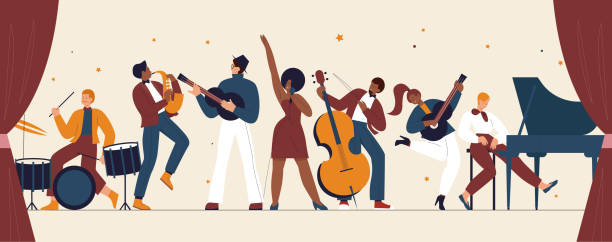
April is Jazz Appreciation Month, a celebration to advance recognition of jazz as America’s original music. Woodlawn recognizes jazz as an art form that represents the complexity of America’s pluralistic, democratic society. A music genre that originated in the African American communities of New Orleans, jazz is a broad style of music characterized by complex harmony, offbeat rhythm, and a strong emphasis on improvisation. Jazz is a multicultural phenomenon with roots in European harmony and African rhythmic rituals. Jazz has always been characterized by collaboration and cross-cultural exchange, with colorful subgenres, such as Afro-Cuban jazz and Latin jazz.
One of the defining elements of jazz is improvisation. Composing on the spot, musicians play music with both instinctive creativity and intentional conviction. By its own nature, jazz is partly planned and partly spontaneous. This gives musicians the opportunity to innovate their own interpretations in response to other performers and whatever else may occur in the moment. America is a culture of improvisation. Whether it’s in our everyday lives or on stage, we’re constantly improvising. Whether we’re moving up the ball court or getting called on by a teacher and giving an answer on the spot, we use improv in daily life. Just as America was an experiment in self-government, so too was jazz in modern music.
There is no greater example of democracy than a jazz ensemble. A jazz ensemble not only embodies individual freedom but also responsibility to the group. Individual musicians have the liberty to express themselves on their instrument, but they dutifully keep their responsibility to the other performers by adhering to the rhythmic framework of the tune.
Many of the musicians, composers, and producers who created “America’s music” chose Woodlawn as their final resting place. To learn more about about the jazz greats and other stars at Woodlawn-Duke Ellington, Miles Davis, and Jean Baptiste “Illinois” Jacquet, just to name a few-click here.
